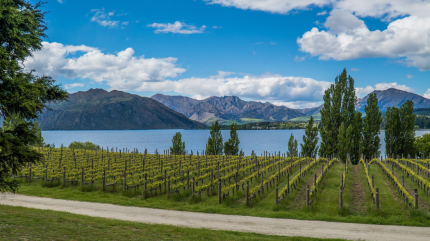
New Zealand’s wine exports have seen “subdued” volume growth of 5% over the last 12 months, new data from New Zealand Winegrowers have revealed.
According to the regional wine association, which represents nearly 90% of total New Zealand wine sales, there was a slight decline in value of less than 1% to NZ$2.10bn ($1.2bn) over the last year.

Discover B2B Marketing That Performs
Combine business intelligence and editorial excellence to reach engaged professionals across 36 leading media platforms.
In its latest annual report, the trade body claimed that the strongest growth in the past year has come from emerging export destinations, where shipments to China grew 47% to NZ$56m, while exports to South Korea rose by 92% to NZ$44m.
However, the major market for New Zealand wine remained the US, with exports valued at NZ$762m – down 3% in the past year – despite increased costs from tariffs.
While the tariffs have been in place since April and a further rise implemented in August, the trade body said that “it is not yet possible to discern the effect of these in the export data”.
Meanwhile, exports to second-tier markets (all those except the US, UK and Australia, which take over 70% of exports) grew 17% in the past 12 months to just under NZ$600m.

US Tariffs are shifting - will you react or anticipate?
Don’t let policy changes catch you off guard. Stay proactive with real-time data and expert analysis.
By GlobalDataThe winegrowing association said this “reflects strong trade and consumer interest as well as the ability of wineries to develop new markets with improved supply”.
Despite the “subdued” export performance overall, the total retail sales value of New Zealand wine in export markets is now estimated to be NZ$4.9bn.
The trade association added that “this speaks positively to the reputation and standing our wines have built up over many years and is a sign of our future growth potential”.
New Zealand Winegrowers added that “tough economic conditions” were having an impact on sales, as well as long-term trends such as wine consumption being at its lowest level in more than 20 years.
Meanwhile, the country also saw “favourable weather conditions” throughout the year, providing “positive conditions for a high-quality harvest”, the association said.





